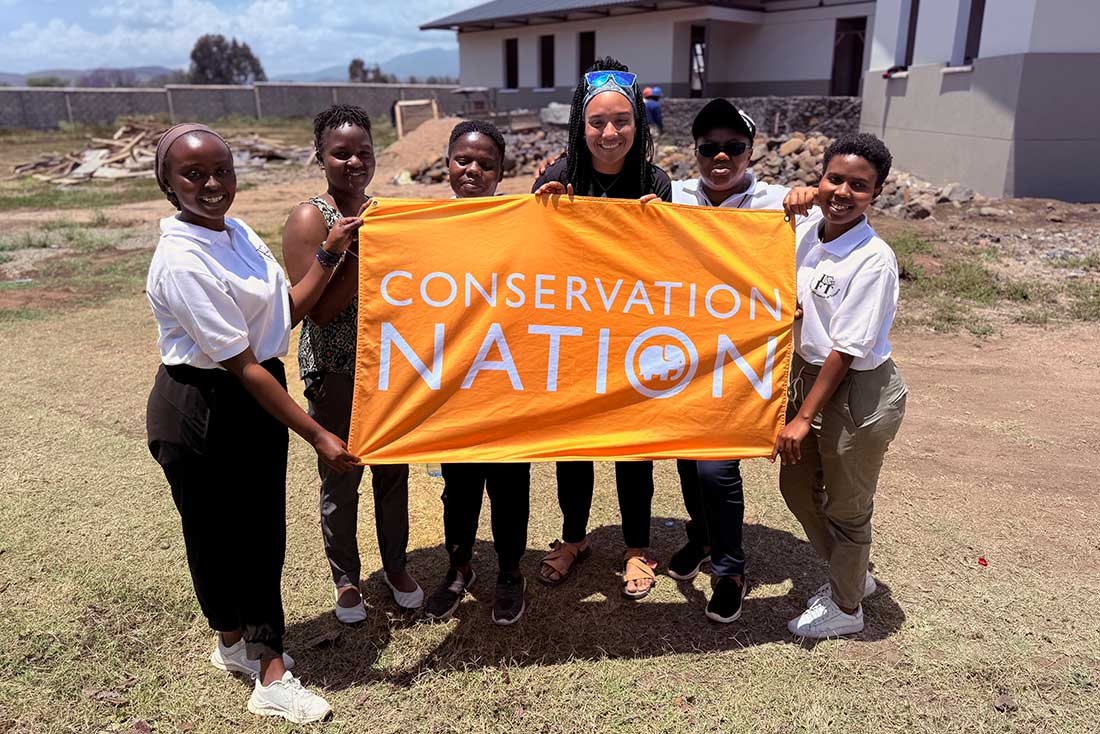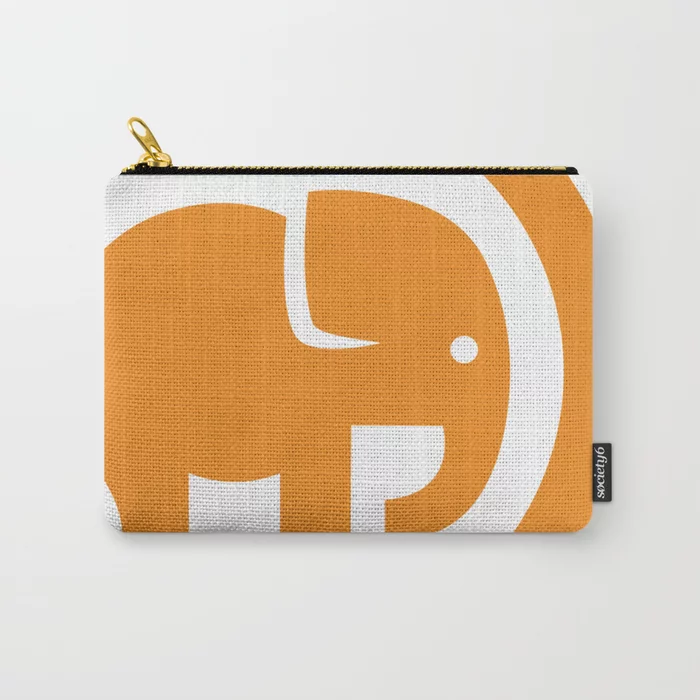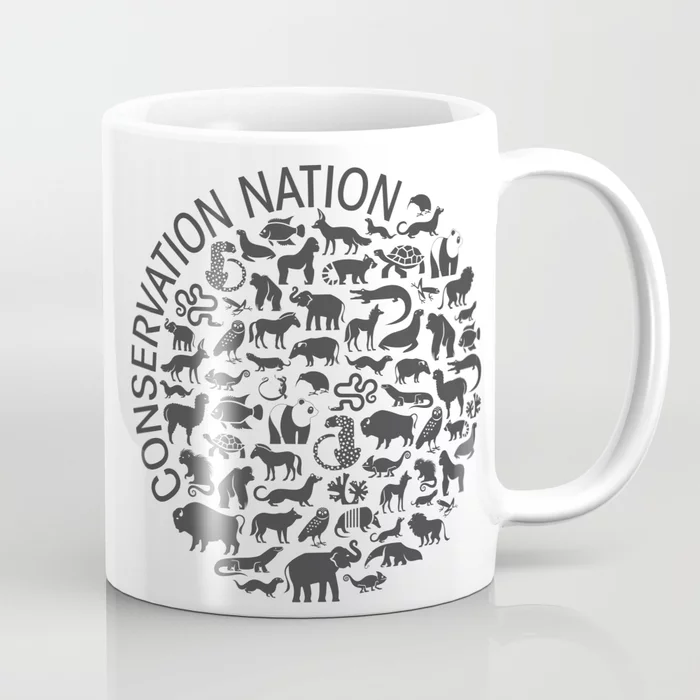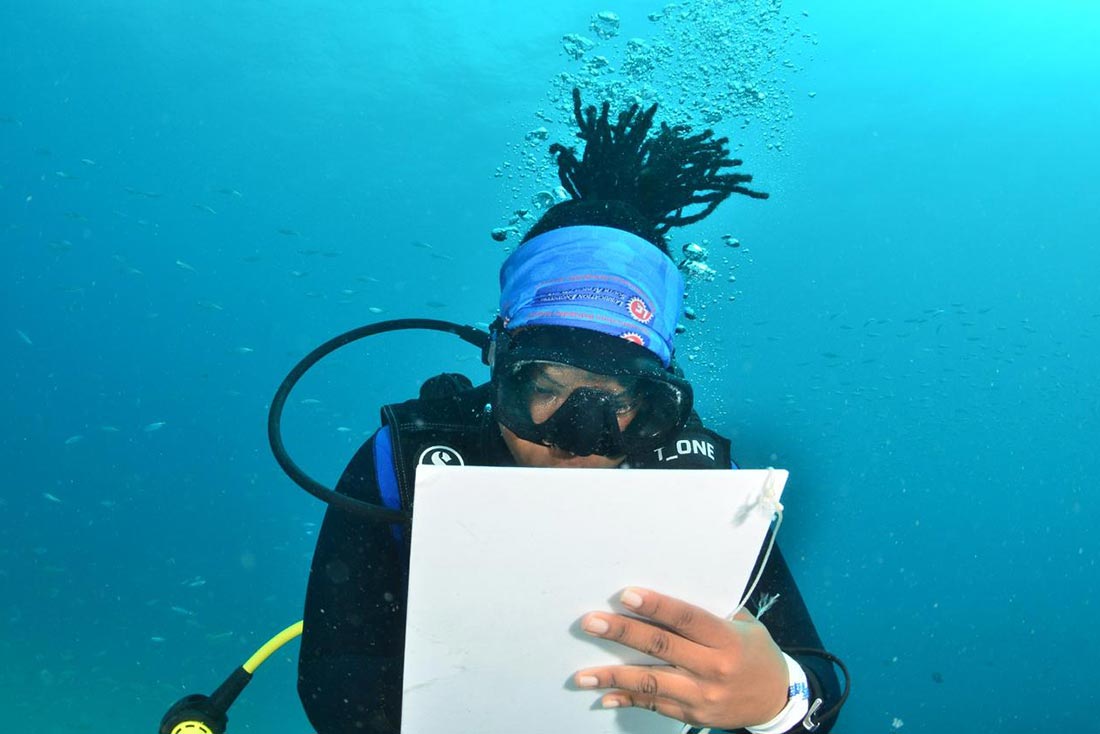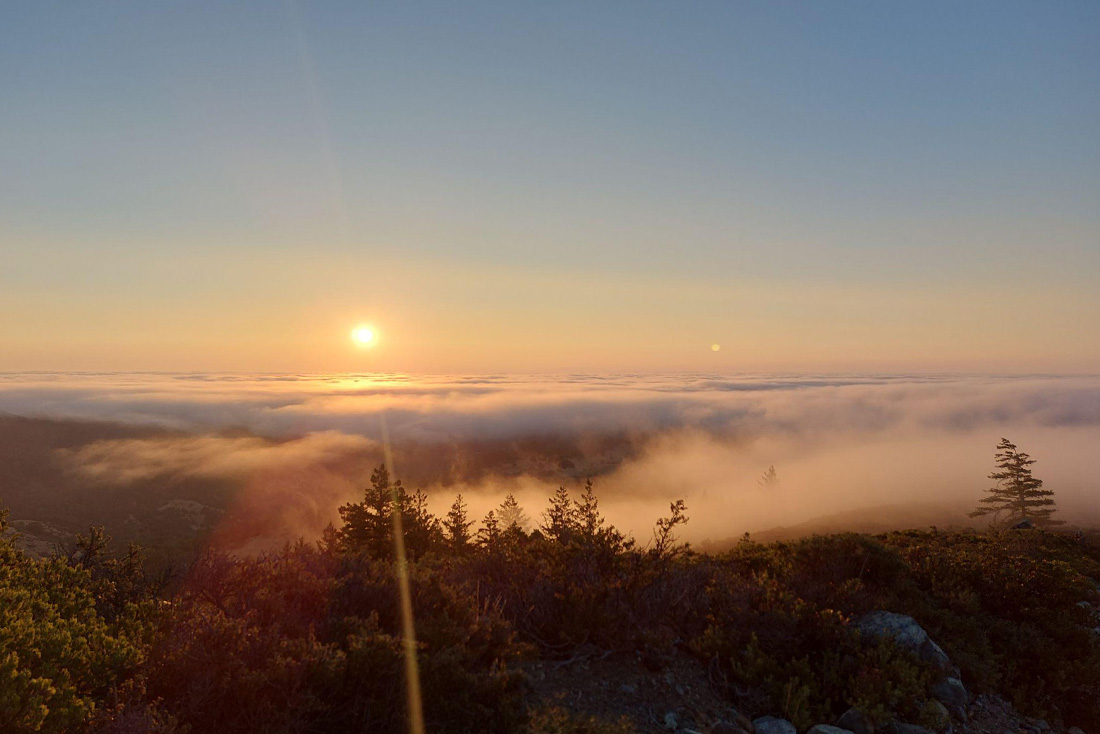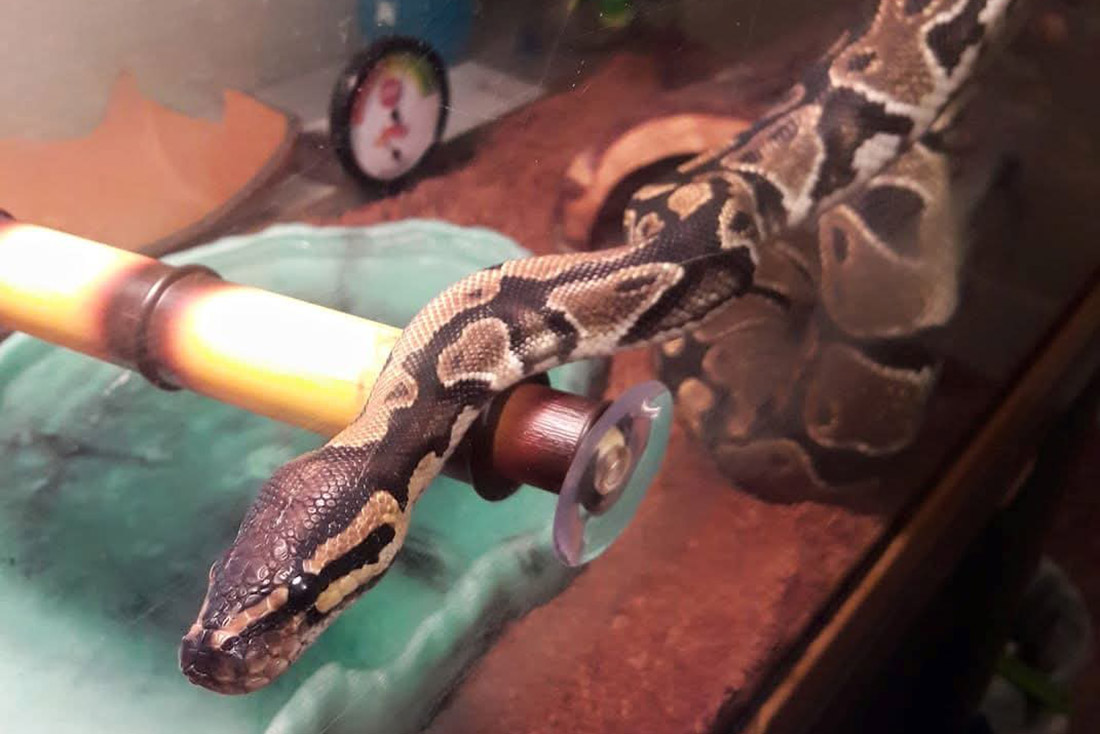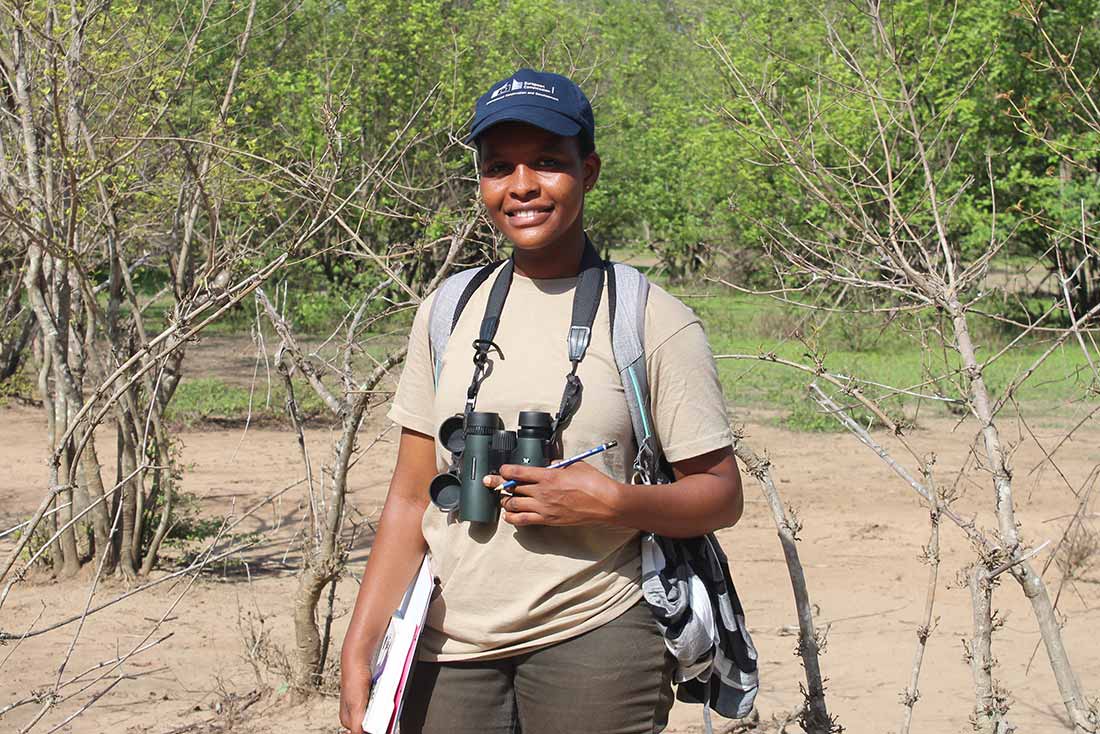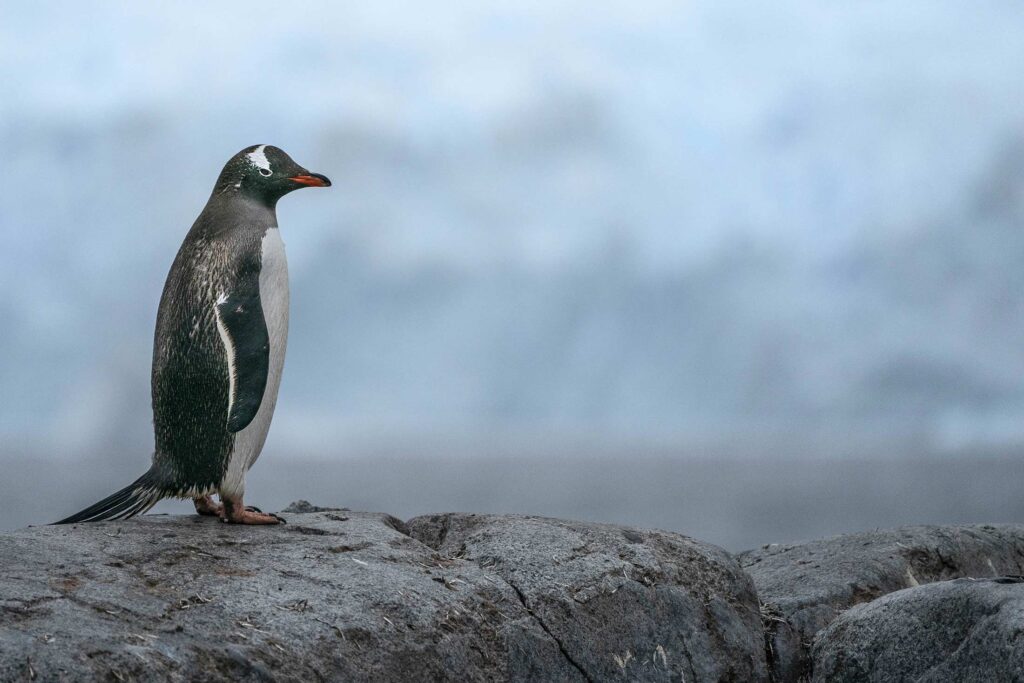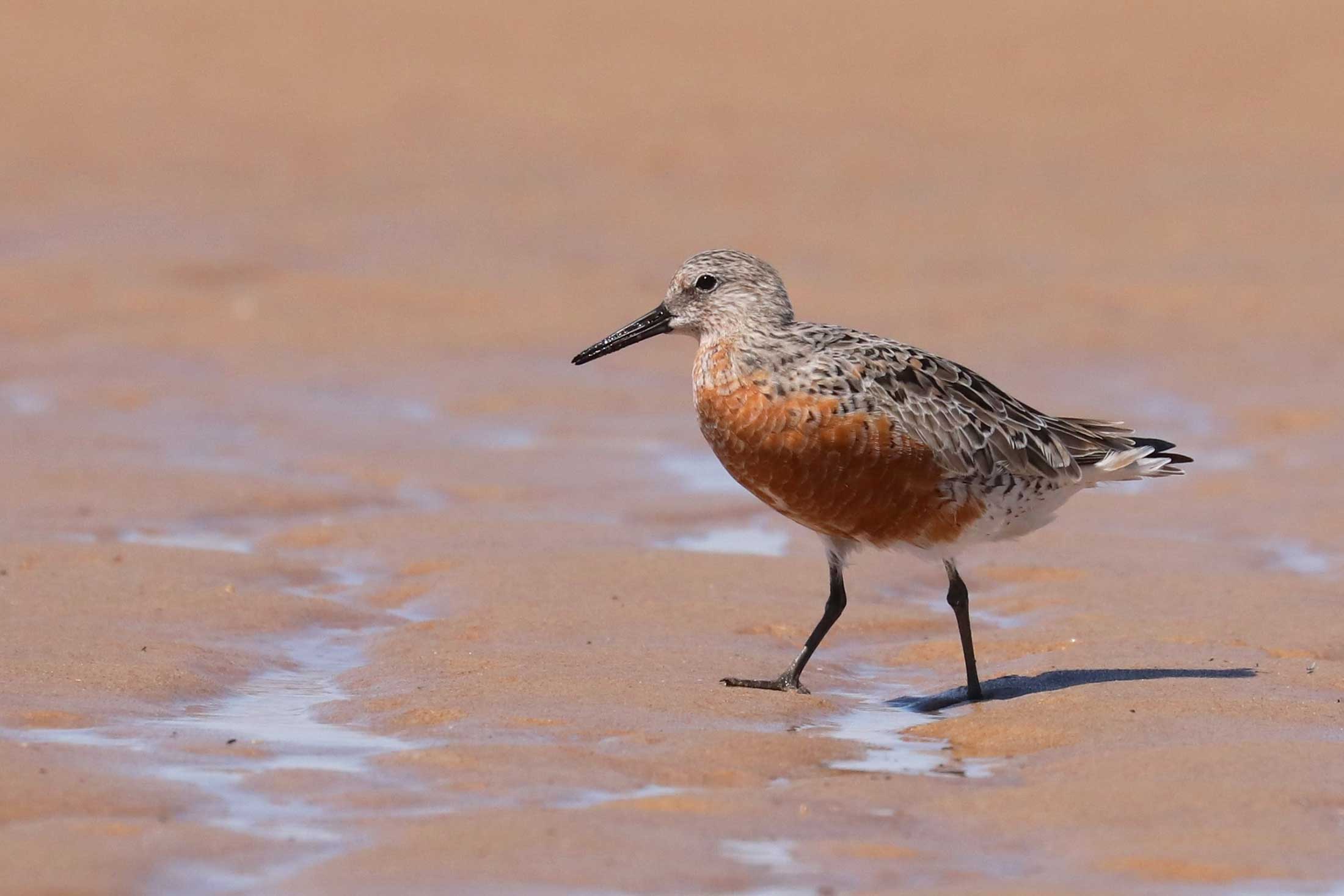The Conservation Nation Grant Program provides funding to help save endangered animals and their ecosystems by building a stronger, more diverse community of conservation practitioners. We believe there is great conservation progress to be made by broadening the field of committed individuals working to address the global wildlife conservation challenge.
Conservation Nation supports innovative, on-the-ground conservation around the world by practitioners from traditionally marginalized communities. Our focus is on helping foster conservation solutions that serve the needs of both nature and people and in terrestrial, marine, or freshwater ecosystems that support a wide range of biodiversity.
In addition to providing project funding, we support our grantees with ongoing professional development and capacity-building opportunities to ensure their growth and success so that they stay and thrive in the field of conservation.
We also place a strong emphasis on ensuring that grant recipients share their work and knowledge and become mentors for our Youth Conservationists.
Conservationists are eligible for funding up to US$10,000 for a grant period of one to two years.
Applications must be submitted through the grants portal. The grant portal will close at 5 p.m. EDT on June 23, 2023. Applications submitted via email will not be considered.
The application deadline has passed.
Questions? Contact us at [email protected].
Application Information
- Early to mid-career conservationists.
- Special consideration will be given to people from traditionally marginalized communities.
- The project must be connected to an in-country partner if the conservationist does not reside permanently in the community.
- This grant is targeted toward individuals. The application must be filled out and submitted by the grant applicant.
- Applications must be submitted through the grants portal which will open the first week of May. The grant portal will close at 5 p.m. EDT on June 23, 2023.
- Successful applicants will be notified in mid-August 2023.
- The formal public announcement of grantees will be made in September and funds will be disbursed shortly thereafter.
- You must be able to administer your grant between October 2023-September 2025.
- The applicant must demonstrate that the funds will be used for or to support conservation activities or research conducted in situ for wildlife conservation.
- The project must be co-created with an in-country partner if the conservationist does not reside permanently in the community. A letter of support must be provided with the application to show the intent of co-creation of the project.
- Priority will go to projects that are sustainable and have community involvement.
- The applicant must have a working bank account that can receive electronic funds in USD.
- In consideration of our mission, our preference is to fund individuals and small non-profit organizations. This must be a nonprofit organization under your country's laws, or a nongovernmental organization who follows other foreign government laws for charitable purposes. For example, a U.S. organization would be qualified under Section 501 (c)(3) of the Internal Revenue Code.
- Both ongoing and new projects, including seed and proof of concept projects.
- Travel expenses for research or conservation efforts. Funds may cover incidentals, meals, and expenses.
- Funding to support in-country personnel at project sites.
- Funding to support intern stipends and wages of persons supporting the project, to be awarded on a case-by-case basis.
- Stipends or honoraria for guest speakers or lecturers, to be awarded on a case-by-case basis.
- Dependent care assistance for a minor (child) or adult dependent for whom you are responsible.
- Unsupported activities, activities that are strictly of personal interest.
- Working or collaborative teams that focus on topics not related to conservation.
- Salaries or gifts for guest speakers or lecturers, etc.
- Indirect costs above 10%.
- Cash donations to conservation organizations or third parties.
- Lobbying activities or supporting attempts to influence legislation.
Grant Requirements
- Attend the grantee orientation online seminar or confirm that you have reviewed the recording.
- Completion of an onboarding questionnaire.
- Participation (in-person or virtually) in a minimum of two to three education or outreach-based events or activities within the grant cycle. E.g., Community presentation for an affiliated organization or group, conference, etc.
- Provide one-to-two “About your project” blogs for the Conservation Nation website.
- To provide updates on your project via filling-out of periodic surveys to track progress. These surveys may ask you for data points such as shareable GPS coordinates, media uploads (audio, images, video, or other), and to answer some brief questions. We will use this data to track the impact on funded projects and to engage our donors.
- A brief check-in with the grants manager half-way through and at the end of project.
- Completion of an interim, mid-year check-in report to share with our supporters across our communication channels, I.e., website, social media, emails, and donation platform.
- Completion of an end-of-year summary, in the form of a recorded PowerPoint presentation, StoryMap, or video presentation that we can share with our supporters to show our collective team’s work to save threatened wildlife.
- A complete financial accounting of grant funds awarded, including a copy of all receipts. Grant funds should be spent down within the contract year. If needed, a 3-month extension would be considered upon request.
- Media Release: Any images that you provide to Conservation Nation may be used as part of marketing campaigns, donor outreach, social media posts, and/or posted to the Conservation Nation website. Please note that any photos with participants or partners will also need media releases.
- Ongoing support of Conservation Nation and of their project whenever possible on social media channels.
- Public recognition of the Conservation Nation grant when and where possible including but not limited to publications (print or digital), presentations, interviews, conference posters, public signage, and social media.
- The grant selection committee may contact the grant applicant with follow-up questions, as necessary.
- Conservation Nation may contact recipients for additional information, an interview, or photographs to use as part of marketing campaigns and donor outreach.
- Grantees will work with the grants manager throughout the year to meet grant requirements.
- Conservation Nation Education staff members are available to grant recipients throughout the grant cycle to help develop ideas for education outreach commitments.
- Proposed changes to the allocation of grant funds must be submitted and approved by Conservation Nation in advance.
- Conservation Nation reserves the right to decline funding grants in any given year.
Conservation Nation is committed to the success of our grantee partners. We recognize that our grantees incur essential, expenses (“indirect costs”) that are not identified with a specific activity or project such as general administrative expenses, utilities, rent, legal expenses, accounting, and digital infrastructure. Grant applicants are encouraged to request reimbursement of indirect costs to reflect these operational expenses up to 10% of their project’s direct costs such as personnel, equipment, travel, training, and software. If you have questions about this policy or seek an exception, please contact our Grants Team at [email protected].
Proposals must include a completed application form and the following eight pages:
Pages one, two, and three must include:
- One paragraph project summary.
- Project background.
- Project goals and objectives.
- Target outcomes.
- Evidence of community involvement, including in-country partner identification and a letter of support* from the said partner.
Page four: A single-page budget. Download File
- If you haven't done so already, download and complete the budget template and fill it out with your list of itemized expenses. All expenses must be in U.S. Dollars.
- After filling out the budget template, please save it as a PDF and upload it as part of your proposal.
Page five: A single-page timetable for implementation within the grant cycle.
Page six: A single page of sources and citations. (This is encouraged but not a necessity.)
Page seven: Please upload your CV or resume.
Page eight: *Please upload your partner organization's letter of support. The letter of support should include:
- Name, address, and website URL of the partner organization.
- Name and email of a contact person.
- Description of their role as a partner organization to you and your project.
Proposals are not to exceed these eight pages as noted above.
Applications that do not follow the requirements and requested content noted above will be automatically disqualified.
Application Questions & Notes
- If your project or program is funded by any other grant sources, you will need to provide their names and the amount secured.
- If you are currently seeking funding from other grant sources for your project/program, you will need to provide their names and the amount requested.
- If your project or program has external partners or collaborators, please provide their names along with the funding that they are contributing.
- How many years of experience do you have working in conservation or "like" fields? Please feel free to include volunteering, intern, and paid positions.
- What are three benefits you will personally gain from this funding that will help towards your conservation career goals?
- In a short paragraph, how would you share the story of your conservation career? The Conservation Nation Grant Program provides funding to help save endangered animals and their ecosystems by building a stronger, more diverse community of conservation practitioners.
- What is your interest or capacity in acting as a mentor for our Youth Conservationists? We place a strong emphasis on ensuring that grant recipients share their work and knowledge and become mentors for our Youth Conservationists.
Application Information
- Mid-career conservationists. For example, 7+ years experience.
- Special consideration will be given to people from traditionally marginalized communities.
- Home base, and/or place of work is based in the U.S.
- Projects and programs can be domestic or international.
- The project must be connected to an in-country partner.
- Applications must be submitted beginning August 15, 2022, and no later than August 29, 2022.
- Successful applicants will be notified by October 5, 2022. Should you be selected, you must provide a photo and bio within three business days.
- The formal public announcement of grantees will be the week of October 24, 2022, and funds will be disbursed shortly thereafter.
- The applicant must demonstrate that the funds will be used for or to support conservation activities or research conducted in situ for wildlife conservation.
- The project must be co-created with an in-country partner and a letter of support must be provided with the application to show the intent of co-creation of the project.
- Both ongoing and new projects, including seed and proof of concept projects.
- Travel for research or conservation efforts. Funds may cover incidentals, meals, and expenses.
- Funding to support range in-country personnel at project sites (international and domestic).
- Funding to support intern stipends and wages, to be awarded on a case-by-case basis.
- Stipends or honoraria for guest speakers or lecturers, to be awarded on a case-by-case basis.
- Unsupported activities, activities that are strictly of personal interest.
- Working or collaborative teams that focus on topics not related to conservation.
- Salaries or gifts for guest speakers or lecturers, etc.
- Organizations. This grant is for individuals only.
- Cash donations to conservation organizations or third parties.
- Lobbying activities or supporting attempts to influence legislation.
Grant Requirements
- Attend the grantee orientation online seminar or confirm that you have reviewed the recording.
- Completion of an onboarding questionnaire.
- To provide updates on your project via filling-out of periodic surveys to track progress. These surveys may ask you for data points such as shareable GPS coordinates, media uploads (audio, images, video, or other), and to answer some brief questions. We will use this data to track the impact on funded projects and to engage our donors.
- Media Release: Any images that you provide to Conservation Nation may be used as part of marketing campaigns, donor outreach, social media posts, and/or posted to the Conservation Nation website.
- Completion of an interim, mid-year check-in report to share with our supporters across our communication channels, I.e., website, social media, emails, and donation platform.
- Ongoing support of Conservation Nation and of their project whenever possible on social media channels.
- Participation (in person or virtually) in a minimum of two to three education or outreach-based events or activities within one year of receiving the grant. E.g., Community presentation for an affiliated organization or group.
- A brief check-in with the grants manager part-way through and at the end of your project.
- Completion of an end-of-year summary, in the form of a recorded PowerPoint presentation, StoryMap, or video presentation that we can share with our supporters to show our collective team’s work to save threatened wildlife.
- Public recognition of the Conservation Nation grant when and where possible including but not limited to publications (print or digital), presentations, interviews, conference posters, public signage, and social media.
- A complete financial accounting of grant funds awarded, including a copy of all receipts. Grant funds should be spent down within the contract year. If needed, a 3-month extension would be considered upon request.
- The grant selection committee may contact the grant applicant with follow-up questions, as necessary.
- Conservation Nation may contact recipients for additional information, an interview, or photographs to use as part of marketing campaigns and donor outreach.
- Grantees will work with program coordinators throughout the year to meet grant requirements.
- Conservation Nation Education staff members are available to grant recipients throughout the grant cycle to help develop ideas in advance of your education outreach commitments.
- Proposed changes to the allocation of grant funds must be submitted and approved by Conservation Nation in advance.
- Conservation Nation reserves the right to decline funding grants in any given year.
- Conservation Nation is committed to the success of our grantee partners. We recognize that our grantees incur essential, expenses (“indirect costs”) that are not identified with a specific activity or project such as general administrative expenses, utilities, rent, legal expenses, accounting, and digital infrastructure. Grant applicants are encouraged to request reimbursement of indirect costs to reflect these operational expenses up to 10% of their project’s direct costs such as personnel, equipment, travel, training, and software. If you have questions about this policy or seek an exception, please contact our Grants Team at [email protected].
- One paragraph project
- Project
- Project goals and
- Target
- Evidence of community involvement, including in-country partner identification and a letter of support* from the said
- Answers to the following questions:
- What is your experience, ability, or interest to act as a mentor for our Emerging or Youth Conservationists?
- If you could describe your career journey in 3 words, what would those 3 words be?
- Please download and complete the budget document to list your itemized
- Include a justification for each item in the context of your project or activity
- Name, address, and website URL of the partner
- Name and email of a contact
- Description of their role as a partner organization to you and your

